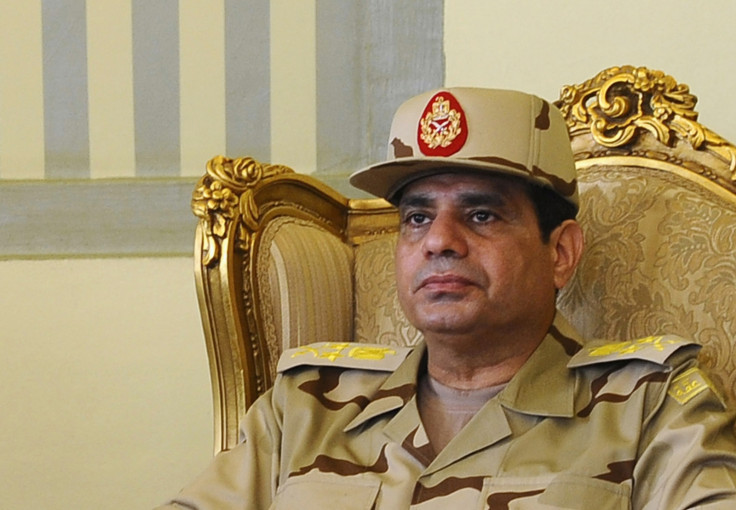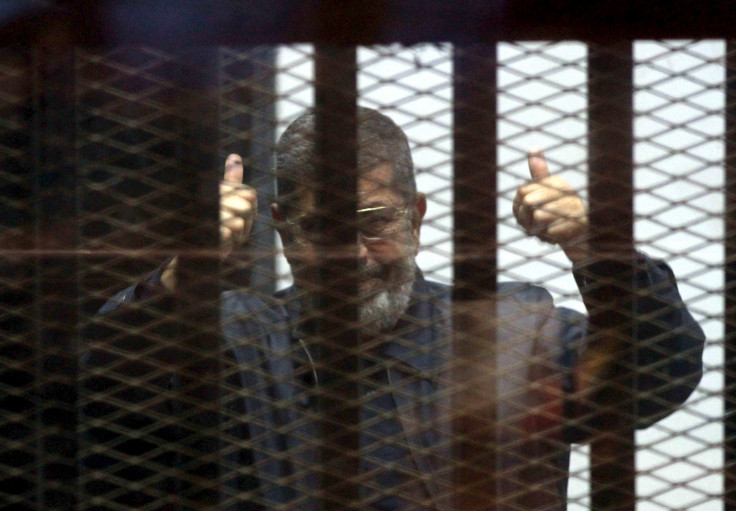Egypt: David Cameron should not be welcoming 'brutal dictator' Abdel Fattah al-Sisi to Britain

Following the recent terror attack in Tunisia, David Cameron rightly came out in strong condemnation of the perpetrators.
Key to the prime minister's argument was that the Sousse atrocity was about a clash of fundamental values and beliefs. In an article in the Daily Telegraph, Mr Cameron painted his leadership as firmly rooted in the unalienable principles of Western liberal values.
"We must be stronger at standing up for our values – of peace, democracy, tolerance, freedom," he said. "We must strengthen our institutions that put our values into practice: our democracy, our rule of law, the rights of minorities, our free media, our law enforcements – all the things the terrorists hate."
Sisi's strongman image is a cleverly executed mirage.
This reaction was somewhat unsurprising. After all, what Western leader hasn't reasserted the principles of his own nation after falling victim to such barbarism?
Yet this comes at a time when the PM is making overtures to the Middle East's latest dictator, General Abdel Fattah al-Sisi. So much so that Sisi is expected to be welcomed on an official visit to the UK this month.
Since seizing power in a military coup in 2013 – which deposed Egypt's first-ever elected government and head of state, Mohammed Morsi – Sisi has gone on an unprecedented rampage against the fundamental freedoms and human rights of his own people.
Tens of thousands of political activists languish in jail and according to Amnesty International, state sanctioned torture is 'routine'. Hundreds, including Morsi, have been sentenced to death in trials that Amnesty has also called 'grossly unfair'.
Sisi continues this purge with a quite staggering brazenness. Even after the international condemnation of the detention of the three Al Jazeera journalists, only this week another set of independent journalists were arrested and thrown in jail.

Mohamed Adly, Hamdy Mokhtar and Sherif Ashraf were covering the arrival of the bodies of nine Muslim Brotherhood members who had been killed in a raid by security forces.
The Committee to Protect Journalists states that Egyptian authorities are holding the highest number of journalists behind bars since the organisation began keeping records. The paranoia at the heart of the regime is clear and only last week legislation was passed making criticism of the regime on terrorism-related stories illegal.
Defenders of the regime deflect criticism by stating they are the only ones that can bring stability to an increasingly lawless region. As states collapse around them, a 'strongman' like Sisi can rebuild a robust Egypt that acts as a bulwark against the cancer of Islamic State (Isis). Clearly this is a fallacy.
Since the 2013 coup, the emergence of IS in the Sinai peninsula has only increased, as the disaffected and the persecuted are easily manipulated by terrorist recruiters. The regime's clampdown on all forms of political expression has left a swell of young, disenchanted and restless youths with nowhere to turn.
Politics is toxic, polarised and being driven underground. Bombings and assassinations have now hit the heart of Cairo. Clearly Sisi's strongman image is a cleverly executed mirage.
The awful attack on British tourists in Tunisia indicates that IS respects no borders. Whether it is a dictatorship in Egypt or a democracy in Tunisia, IS will look to spread its toxic cult of violence everywhere. The West's blind faith in the Egyptian regime to deliver security is clearly misplaced.

Yet Tunisia and Egypt also offer a more revealing contrast. In Tunisia, political Islamists lost an election and stepped down peacefully. In Egypt, the Muslim Brotherhood was overthrown in a coup, and brutally suppressed. Its leaders now all face the death penalty.
Another new raft of legislation – via presidential decree – will rush through death sentences and remove the fundamental right of appeal. In short, we could soon witness the mass executions of the legitimate Egyptian government after a farcical legal process. Are these the values Cameron so espouses?
The pronouncements of Cameron after the Tunisia attacks therefore run very hollow. On one hand, he insists this is a time 'to defend our values'. On the other, a man who has resurrected the worse excesses of the Mubarak era is welcomed to the UK.
As Tunisia's young democracy is tested its limits, we must ask ourselves which path we want to choose. If Sisi lands on UK soil, the abandonment of the supposed values Britain wishes to defend will be all but settled.
Yehia Hamed is a former Egyptian Minister of Investment and is currently in exile in Istanbul.
© Copyright IBTimes 2025. All rights reserved.






















